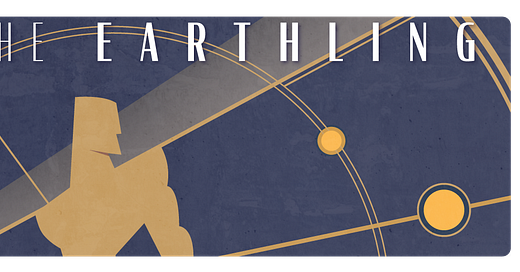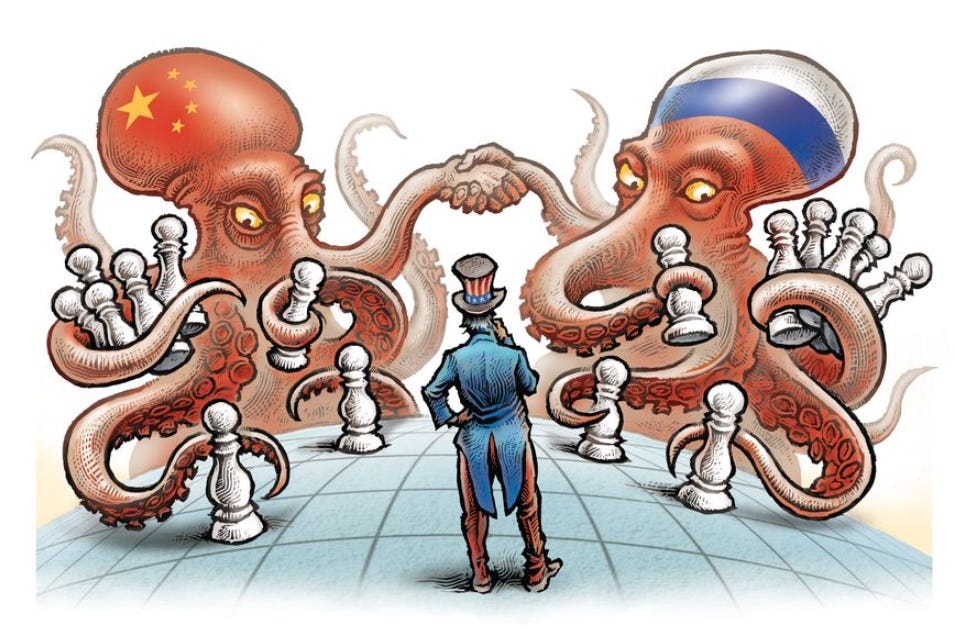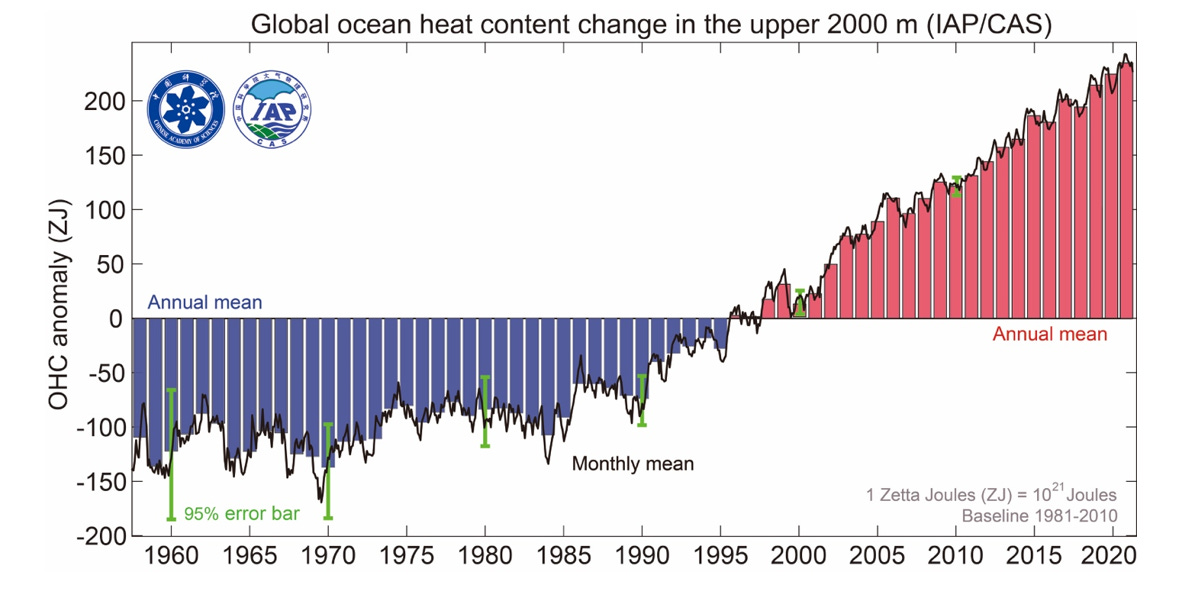The Wall Street Journal posted an explainer video this week about tension between China and Elon Musk. The issue is the thousands of satellites Musk is putting in low-Earth orbit as part of his Starlink internet access service—satellites that China’s manned space station has twice had to dodge to avoid devastating collision (and that are so numerous and close to Earth that they occasionally get mistaken for alien spacecraft). The video’s upshot: With more and more players—including China—getting into the low-Earth-orbit internet access business, the world needs to develop some rules of the road, lest a collision trigger a chain reaction of satellite destruction via cascading space debris. Astronomer Jonathan McDowell of the Harvard-Smithsonian Center for Astrophysics is heartened by China’s having reported the two near misses to the UN’s space agency in December: “I think it’s actually a good sign that China is engaging on this in a public way. To present it to the UN really puts the issue of space traffic management higher on the agenda.”
In the New York Times, columnist Peter Beinart suggests that it’s hypocritical for America to expect Russia to accept the prospect of Ukraine’s joining NATO, given America’s expansive conception of its own rightful sphere of influence. He says the spirit of the Monroe Doctrine (two centuries old next year!) is alive and well; though America hasn’t lately been intervening in Latin America militarily, as it did during the 19th and 20th centuries, it does use “economic coercion to punish governments that ally with adversaries and challenge its regional dominion.” Hence America’s immiseration-by-sanction of people in Cuba and Venezuela, their punishment for living under governments that America deems insufficiently compliant.
Tweet of the week:
Stone Age, Bronze Age, Iron Age…Waste Age? Writing in Aeon, journalist and design critic Justin McGuirk applies that label to the last 250 years of human history. These days, he writes, “waste is not merely a byproduct of culture: it is culture. We have produced a culture of waste.” McGuirk says that Planet Earth produces a million plastic bags per minute—and already “it’s believed there are more than 5 trillion pieces of plastic in the world’s oceans.” McGuirk thinks his recommended rebranding of our era could, by raising the world’s consciousness, help bring that era to a close. “To invoke the Waste Age is to usher in the hope of a cleaner future.”
The Blob propaganda poster of the week comes courtesy of the Wall Street Journal’s reliably deranged opinion page. It’s an image that accompanied a piece by Robert Kaplan which argues that… well, never mind—a picture is worth a thousand words:
And speaking of the WSJ opinion page: This week Mark Dubowitz and Matthew Kroenig used that platform to argue that because Iran “is striding towards nuclear weapons” and has “little interest” in diplomacy, President Biden should prepare to attack Iran’s nuclear facilities. This sermon about the virtues of diplomacy is ironic, considering that both authors opposed the diplomatic accord that had prevented Iran from moving toward a nuclear weapon—the 2015 nuclear deal that was working just fine until Trump withdrew from it and re-imposed sanctions on Iran, after which Iran began ramping up uranium enrichment. By the way, whenever you see Dubowitz taken seriously as an analyst—whether in the WSJ’s opinion pages or in New York Times reported pieces, which have quoted him with bewildering frequency—you might go read the classic 2015 Slate piece by John Judis on the think tank Dubowitz runs, the (so-called) Foundation for Defense of Democracies.
Last year was the hottest year for oceans in recorded history, according to a study published last week in Advances in Atmospheric Sciences. Here’s a graph that charts changes in the amount of energy stored in oceans in the form of heat:
Good news for Afghanistan: This week, finally, a significant number of American media elites started noting that the country’s growing humanitarian crisis is in no small part a product of the punishing economic sanctions maintained by the Biden administration and (with the Biden administration’s encouragement) by the World Bank and IMF. A New Yorker piece by Jane Ferguson noted as much, as did an MSNBC piece by Chris Hayes and a New York Times op-ed by Laurel Miller. The only thing The Earthling would add to this welcome chorus is this: The Biden administration’s cruelty toward Afghans isn’t just bad policy; it’s bad politics. The more Afghans who starve to death this winter, or die from a dearth of medical treatment, the more Americans will believe that Biden’s withdrawal from Afghanistan was a bad idea.
Blob-related epiphany of the week: Thursday I interviewed Richard Hanania, author of the new book Public Choice Theory and the Illusion of Grand Strategy, which is about, among other things, why US foreign policy is so screwed up. And I discovered that a member of the military industrial complex who I’d thought played a big role in only one epic US foreign policy blunder actually played a big role in two epic US foreign policy blunders. In the clip below, watch as enlightenment dawns on me. (The audio podcast of this conversation doesn’t go public until Tuesday, but paid subscribers can get it now here.)
In an interview with The New York Times promoting the new book Termination Shock, science-fiction writer Neal Stephenson extols the benefits of maintaining a (cautiously) optimistic vision of the future and explains why he thinks solving big problems—climate change in particular—will require a healthy dose of calculated self-interest. Stephenson looks to history to make the point, contending that scientific thinking took hold only once people and institutions saw how it could be harnessed for their benefit (e.g., using steam engines for lucrative ocean voyages). Well, OK, but isn’t climate change a result of calculated self-interest—the fact that if you use cheap, carbon-based energy, the benefits of the low cost go to you while the downside of the greenhouse gas emissions is spread across billions of people? So doesn’t the solution call for either (1) altruism (even if trendy virtue-signaling altruism, as when you spend more money on an electric car than you’ll recover in energy savings) or (2) government intervention? Of course, supporting government intervention—policies that spread the costs of combatting climate change across lots of people, so that your share of the cost is small—can be in your calculated self-interest. Still, that form of self-interest doesn’t emerge through the magic of the marketplace. In any event, these are the kinds of things—altruism, even if trendy altruism, and the (slowly, but still…) growing attention paid to the need for good climate change policy—that give the Earthling a bit of optimism. And maybe if we read Termination Shock, we’ll discover that Stephenson is on the same page.
Note: My weekly conversation with frenemy and ideological nemesis Mickey Kaus can be found after 11:00 p.m. US Eastern Time (give or take an hour) this evening on The Wright Show podcast feed or at bloggingheads.tv or the bloggingheads YouTube channel. And our after-podcast podcast—the Parrot Room conversation, which is available to paid newsletter subscribers and Patreon supporters—can be found shortly thereafter by going to the NZN Substack home page—right here—and clicking on this week’s Parrot Room episode. There you’ll also find a way to get the Parrot Room as a feed in your podcast app.
Illustration by Clark McGillis







Again chock-full with very valuable and well-researched information--thank you.
The term Waste Age was new to me. It's somewhat reminiscent of the dystopian tale of an AI algorithm going rogue and producing nothing but paper clips. Evidently we've saddled ourselves with an economic machinery that does that, but instead of producing (only) paper clips, it converts carbon (in oil, coal, or wood) either into plastic or else CO2, both of which are soiling our shared environment and are seriously jeopardizing our future.
Er, Robert, I think you mean Robert Kaplan, not Kagan, but I can see why they are easy to conflate. As Wikipedia puts it, "Kaplan is not related to journalist Lawrence Kaplan, with whom he is occasionally confused. He is also sometimes confused with neoconservative scholar Robert Kagan.[5]"